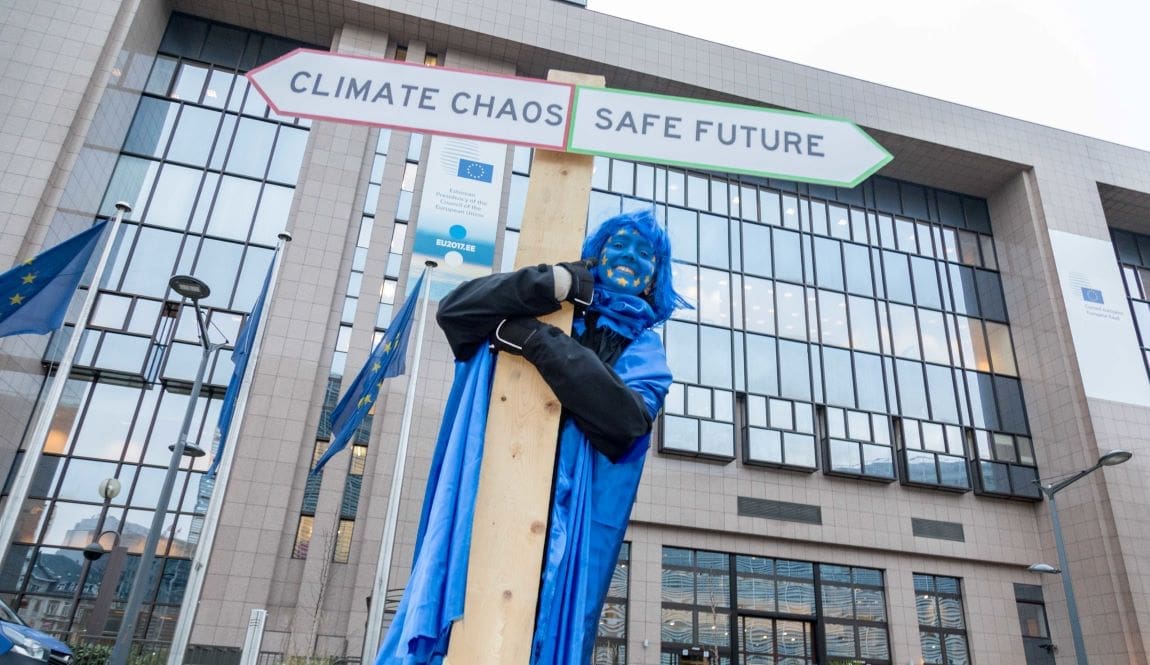Once hailed as a landmark initiative to make Europe the first climate-neutral continent by 2050, the European Green Deal is encountering significant challenges as political momentum wanes amid a rightward shift in the European Union (EU). Key aspects of the ‘Green Deal’, particularly its biodiversity initiatives, are increasingly at risk as the bloc grapples with internal and external pressures.
Dr. Pierre Bocquillon, an Associate Professor of EU Politics and Policy at the University of East Anglia (UEA), highlights these concerns in his recent study published in the Journal of Common Market Studies. Bocquillon notes that the ‘Green Deal’ remains a “moving political object with blurry boundaries, rather than a ‘done deal’,” emphasizing the fragility of the agreement in the face of shifting political dynamics.
The ‘Green Deal’, proposed by the European Commission under Ursula von der Leyen in 2019, set ambitious targets across a broad spectrum of areas, including climate neutrality, biodiversity protection, and the establishment of a circular economy. However, the initiative’s implementation has been met with growing resistance, particularly from populist right-wing factions within the EU. This resistance has led to a potential shift in focus toward competitiveness and green industrialization, influenced by domestic political pressures and global geopolitical competition.
The ongoing war in Ukraine and subsequent concerns over European energy security have further complicated the ‘Green Deal’s trajectory. In response, some EU members have sought alternative fossil fuel suppliers and developed new fossil fuel infrastructures, which run counter to the ‘Green Deal’s long-term climate goals. Economic concerns, amplified by rising costs of living, have been leveraged by populist and far-right groups to challenge the ‘Green Deal’, leading to protests across Europe in 2023 and 2024.
Despite these challenges, the ‘Green Deal’ has demonstrated resilience, particularly in its climate and energy components. The EU’s response to the COVID-19 pandemic and the subsequent energy crisis has, in some cases, accelerated the deployment of renewable energy and improvements in energy efficiency. Most of the ‘Green Deal’s energy and climate legislation was adopted by mid-2024, with these elements becoming deeply institutionalized within the EU framework.
However, the ‘Green Deal’s biodiversity and agricultural components have faced greater opposition. The EU Nature Restoration Law, for instance, has been significantly weakened following protests from farmers and pressure from the centre-right European People’s Party. Similarly, the Commission’s withdrawal of the Sustainable Use Regulation (SUR), which aimed to halve pesticide use by 2030, reflects the growing influence of the agro-chemical industry and right-wing factions.
Looking ahead, the implementation of the ‘Green Deal’ could face further challenges, particularly as specific policies come under review or require revision. Measures such as the planned phase-out of combustion engine cars by 2035 and building emission reductions are seen as vital but remain highly contentious.
Dr. Bocquillon warns that these controversies could hinder the EU’s ability to increase its ambitions, a necessary step if the bloc is to meet its 2050 climate-neutrality target. Moreover, international tensions could arise from the EU’s climate policies, particularly the Carbon Border Adjustment Mechanism (CBAM), which functions as a carbon tax on certain imported goods.
“For the Green Deal to succeed,” Dr. Bocquillon asserts, “it is essential that costs are mitigated through green industrial policies and offsetting measures. Close cooperation – rather than competition – with external partners is also key for the success of the green transition globally.”
As the EU navigates these complex challenges, the future of the ‘Green Deal’ remains uncertain, with its ultimate success dependent on the bloc’s ability to adapt and maintain its commitment to ambitious climate goals amid an increasingly polarized political landscape.
Journal Reference:
Pierre Bocquillon, ‘Climate and Energy Transitions in Times of Environmental Backlash? The European Union ‘Green Deal’ From Adoption to Implementation’, Journal of Common Market Studies (2024). DOI: 10.1111/jcms.13675.
Article Source:
Press Release/Material by University of East Anglia
Featured image: EU at the Energy Crossroads – Action by Climate Action Network (CAN) Europe, Friends of the Earth Europe, Greenpeace EU and WWF. Credit: FoE Europe | CC BY-NC




